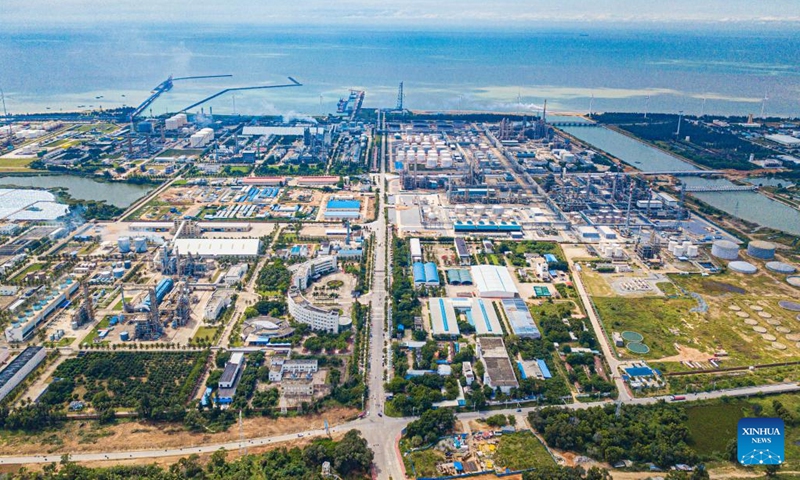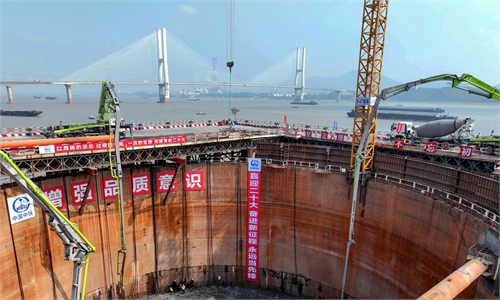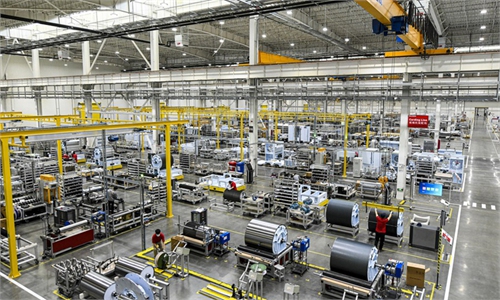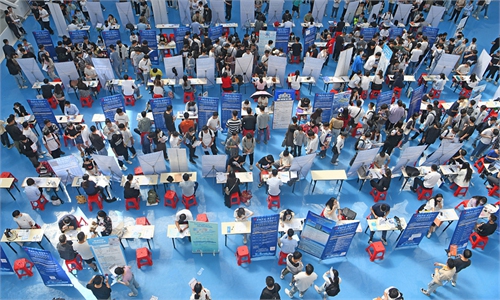
This aerial photo taken on Oct. 20, 2022 shows the Dongfang Lingang Industrial Park in Dongfang City, south China's Hainan Province. Located in Dongfang City, the Dongfang Lingang Industrial Park is one of the key parks of Hainan free trade port. The industrial Park is gradually forming into a high-tech industrial base, featuring petrochemical new materials, marine equipment manufacturing and clean energy.(Photo: Xinhua)
Overseas-invested companies in China reported narrowing profit declines in recent weeks, and small and medium-sized enterprises' profitability was stable, the National Bureau of Statistics (NBS) said on Sunday.
The new data reflected the effectiveness of government policies to stabilize economic growth, particularly those measures aimed at supporting small companies and firms' overseas production in the face of domestic coronavirus flare-ups.
According to the NBS, China's above-scale industrial enterprises reported profits of 6.97 trillion yuan ($973 billion) in the first 10 months, down 3 percent year-on-year.
Companies from overseas including Hong Kong, Macao and the Taiwan island earned profits of 1.66 trillion yuan during the period, down 7.6 percent. The decline largely narrowed from 9.3 percent drop in the first nine months this year.
The profitability of small- and medium-sized enterprises was stable in October. In the first 10 months this year, their profits grew 1.4 percent on a yearly basis, compared with 1.5 percent in the first nine months.
Chen Jia, an independent analyst, said that the improving situation mostly reflected the launch of the government's pro-growth policies that seem to have helped those companies overcome difficulties.
"The primary objective of this year's macro policies is to stabilize the economy and consolidate economic rebounding. Judging from the latest data, China has basically achieved this target," Chen told the Global Times on Sunday.
China has rolled out a series of policies to assist smaller and overseas companies, such as refunding value-added tax credits for businesses and cutting commercial banks' reserve requirement ratios.
Zhu Hong, a NBS senior statistician, said that judging from the statistics, China's industrial structure continued to improve, and some medium-sized and downstream firms' profits saw a rebound.
According to the NBS data, certain emerging industries' situations have improved. For example, the profits of computer, telecommunication and electronics equipment makers dropped by 2.9 percent year-on-year, narrowing from 5.4 percent in the first nine months.
According to Chen, China's monetary and fiscal policies would become more pragmatic and flexible, which are likely to be implemented in a more precise way to stabilize the economy.
Zhu noted that next year, China will push full implementation of a package of pro-growth policies and follow-up measures to propel the country's overall economy, while ensure the stability and smoothness of industrial and supply chains.
Global Times



